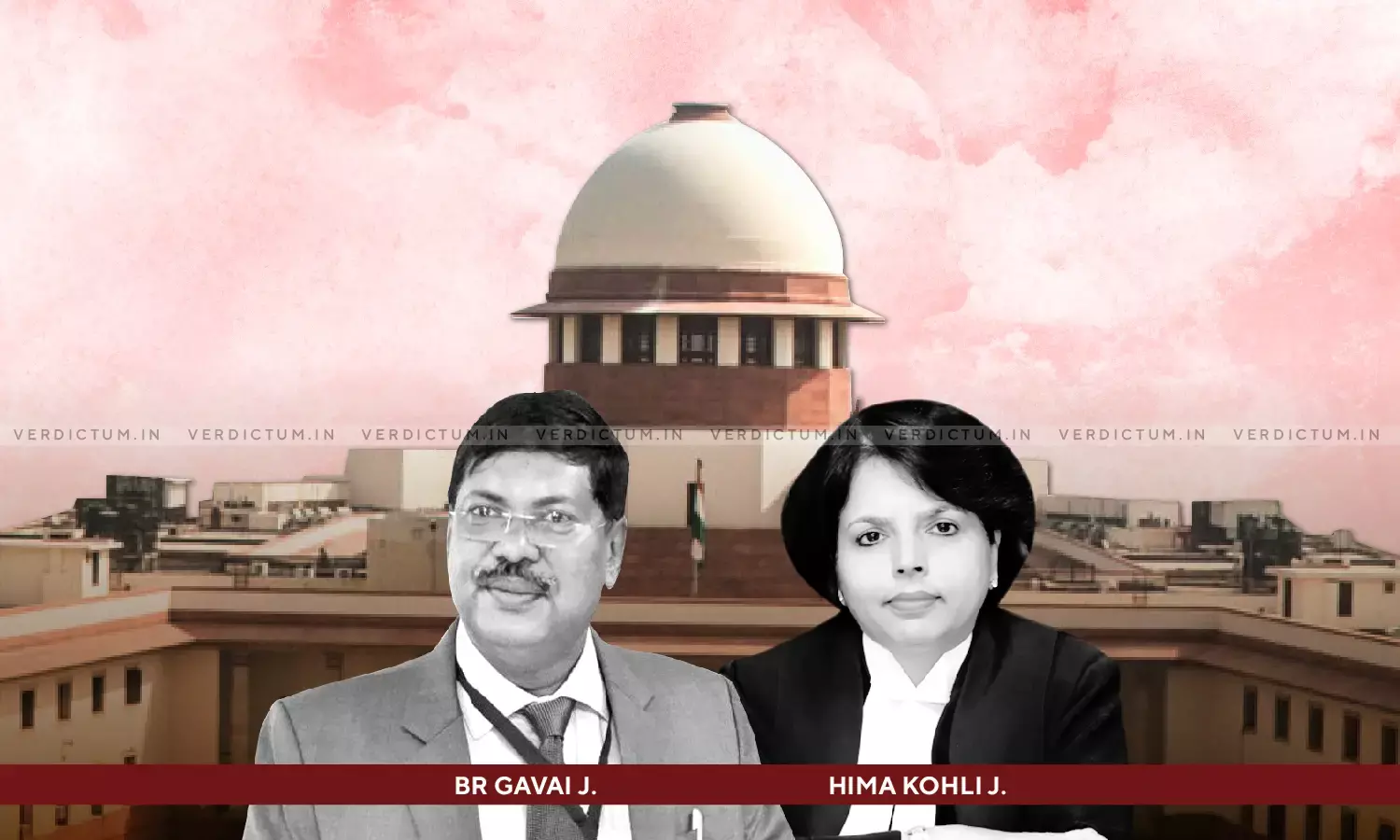Only On The Basis Of Established Motive Conviction Cannot Be Sustained - SC In Murder Case

A two-judge Bench of Justice B.R Gavai and Justice Hima Kohli quashed the orders of the High Court and acquitted the accused of murder charges holding that "only because motive is established, the conviction cannot be sustained".
In the case, an FIR was filed against the appellants – accused of assaulting and causing the death of the complainant's brother. The investigation was conducted, and charges were framed against the accused in the Trial Court, for offences punishable under Sections 148 and 302 read with Section 149 of Indian Penal Code.
The Trial Court acquitted six of the accused and convicted the others for the charged offences and sentenced them to rigorous imprisonment of one year, life imprisonment, and a fine of Rs 5,000. The Madhya Pradesh High Court of Madhya confirmed the Trial Court's order and dismissed further appeals.
Aggrieved, an appeal was preferred before the Supreme Court.
The Counsel on behalf of the appellant Mr. S. Nagamuthu contended that the entire conviction was based on the sole testimony of a witness and as such was not sustainable. While Ms. Ankita Chaudhary who was the Counsel for the respondent-State of Madhya Pradesh supported the decision of the High Court and opposed the appeal.
The Supreme Court noted that- "same treatment is required to be given to the defence witness(es) as is to be given to the prosecution witness(es)."
The Bench relied on the observations in the case of Vadivelu Thevar vs. The State of Madras where the three types of witnesses were described-wholly reliable, wholly unreliable, and neither wholly reliable nor wholly unreliable; and opined that –
"The evidence of Anmol Singh would fall in the category of "wholly unreliable" witness. As such, no conviction could be based on his testimony. We find that the collaboration sought by the High Court from the medical evidence was not justified. The medical evidence could only establish that the death was homicidal. However it could not have been used to corroborate the version of Anmol Singh that he witnessed the incident."
The Court also opined that "only because motive is established, the conviction cannot be sustained." and that "The prosecution has failed to prove the case beyond reasonable doubt and as such, the accused are entitled to be given the benefit of doubt."
The Supreme Court thus allowed the appeals and quashed and set aside the order by the High Court and acquitted the appellants.
Click here to read/download the Judgment

